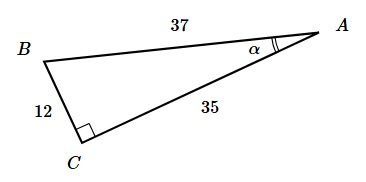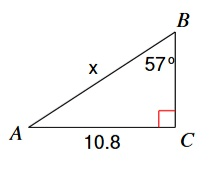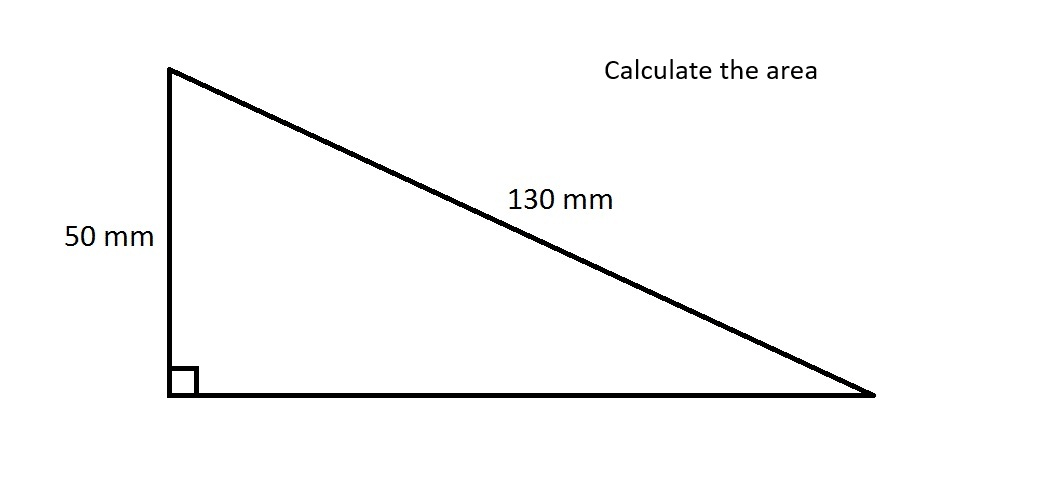What is the name of the longest side in a right angled triangle?
Hypotenuse
Factor the following:
2x - 4
2(x-2)
Is the following number a perfect cube? Why or why not?
81
No
81=3^4
Which means it is not a perfect cube.
Simplify the following:
(2ab^2)(3a^3 bc)
6a^4b^3c
How do you know if a number is irrational?
It cannot be written as a fraction of integers.
It is a non-terminating, non-repeating decimal.
It is a root of a non-perfect value. (eg. square root of non perfect square, cube root of non perfect cube, etc.)

18.92°
Factor the following:
x^2-6x+9
(x-3)(x-3)
Convert the following to a mixed radical.
sqrt(80)
4 sqrt (5)
Simplify the following:
(48a^3b^4)/(6a^2b)
8ab^3
When do we use the cosine ratio to solve for an angle, and when do we use the cosine ratio to solve for a side?
We use it so solve for an angle when we have the length of two sides in a right angled triangle, one being the hypotenuse, and are looking for the angle between them. (ie: we have the adjacent and hypotenuse, and are looking for an angle.
We use it to solve for a side when we have an angle and the hypotenuse/adjacent, and are looking for the other (hyp/adj).

12.88
Factor the following:
4x^2-25
(2x-5)(2x+5)
Convert the following to an entire radical.
6sqrt(5)
sqrt(180)
Evaluate
-32^(-2/5)
-1/4
Is the following expression fully simplified?
(x-2)(x-6)
No, currently the expression is in factored form. For fully simplified form, it would need to be expanded. The fully simplified form is:
x^2-8x+12
Tom is 20m away from a tree. The angle of elevation from Tom to the tree is 56 degrees. How tall is the tree? (Round to the nearest hundredth)
29.65 m
Factor the following
2x^2-20x-48
2(x-10x-24)
2(x-12)(x+2)
What number systems does 0 belong to?
Whole Number
Integer
Rational Number
Real Number
Simplify the following:
((8x^-2 y^2)(-3x^-1 y^3))/(4x^-5 y)
-6x^2y^4
Which of the following is in simplified form? Why?
sqrt(8) or 2sqrt(2)
2 sqrt2
As it is in mixed radical form.
Calculate the area of the following shape.

3000 mm2 or 30 cm2
Factor the following:
2x^2-7x-4
2x^2-8x+1x-4
2x(x-4)+1(x-4)
(2x+1)(x-4)
Convert the following to a mixed radical.
sqrt(12x^5y^2)
2x^2ysqrt(3x)
Simplify the following:
((x^2y^-4)^3/((2x)^4))^(-3/2)
(64y^18)/(x^3)
What is any value raised to the power of zero? Why? Are there any exceptions?
2/2 = 1
2^1/2^1 = 1
2^(1-1)=1
2^0 = 1
The value will always be 1. This is true for any number except a base of 0.